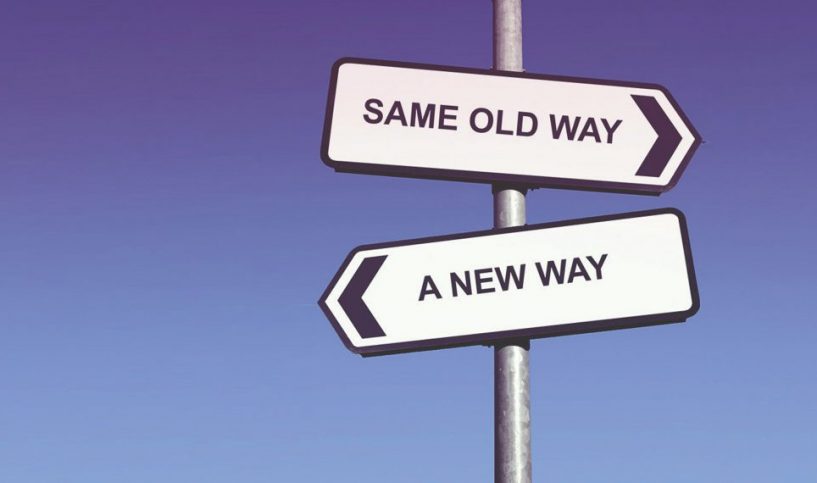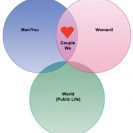Traditionally, January is the Month of Resolve; the regular cycles of the calendar encourage this natural tendency and millions of us mentally and psychologically think of January 1 as the beginning of something entirely new.
Years ago, as I contemplated the nearly completed calendar, I realized that two particular clients I’d worked with felt significant to me. Both had begun therapy in January, both were driven to seek help by unexpected crisis, and both were going to finish out the year with me. But there the similarity ended. One was going into the New Year with anticipation, looking forward to the “anniversary” of having begun therapy as the day he planned to be finished. He had a well-practiced toolbox of techniques and strategies for managing stress, making decisions, and grounding himself in the reality of the present moment.
The other client, however, was living every day with the fervent, heartfelt wish, “I just want this year to be over.” Her mantra had become, “This is just a bad year. Everything will be better when it’s over. It has to be.” Though she had access to the same tools, and the opportunity to learn how to use them, she fixated instead on the idea that the year itself was somehow responsible for the ‘series of unfortunate events’ that were making her life so miserable.
While it appeared that these two individuals were similar in many ways, in one vital way they were very different. Client #1 believed that he had the power within himself to change things, and Client #2 believed she had to wait for something to change.
Don’t get me wrong – really, really unhappy things happen in life and we don’t get to choose whether or not these painful events impact our lives. What we do get to choose is how we face, process and manage these circumstances. Client #1 comprehended that he could do something about his attitude toward life and he diligently set out to learn how. We channelled that desire by identifying one small change he could make in his daily life; small enough to be sustainable, but significant enough (if he kept doing it) to have an impact. Sometimes this was difficult to do – the proposed change for that month would be too big (“I’ll stop smoking.”) or unquantifiable (“I’ll stop being so controlling.”) or not intentional enough (“I’ll exercise.”) and we’d have to wrestle to find a way to make the change doable, sustainable and relevant. In February, he decided he would try, “Not My Problem Day,” and picked one day a week when his response to anyone who told him about a problem would be, “I can see that’s a difficulty/problem/issue for you. How are you going to solve it?” He was so pleased with the outcome of that experiment that when I proposed for March that he say, “No,” to one request per day because he could (and he needed to exercise his ‘No’ muscle), he was willing to try it. In April, while continuing to practice February and March’s changes, he added leaving his desk at lunchtime every workday for at least 30 minutes. These small actions, consistently done in conjunction with the opportunity to process his emotional and mental distresses, added up to a completely different life and lifestyle at the end of 12 months.
Client #2, however, resisted the idea that small changes could be helpful, wishing for a ‘magic wand’ (her words) to make everything right. Though she also asked for support for the emotional and mental distress of her circumstances, she actually changed nothing, persistent in her belief that the year was a bad one, and things would be better when it was over. Guess what? That didn’t happen.
It is the small changes in habit – which we ALL have the ability to do – that add up, over time, to big changes in life. On the contrary, when we ‘bite off’ more than we can chew, we end up choking. Many, many people experience a sense of failure and temporary depression when they realize (often in April) that most, if not all of their New Year’s Resolutions have fallen by the wayside.
Don’t be those people. Set yourself up for success by planning small, sustainable actions that will add up to Big. Change.
Twelve new habits in 2017.
You can do it.
Dr Susannah is a leading psychologist, registered professional counsellor and Master Practitioner in Clinical Counselling based in Canada. Follow @DrSusannah on Twitter and Instagram.








